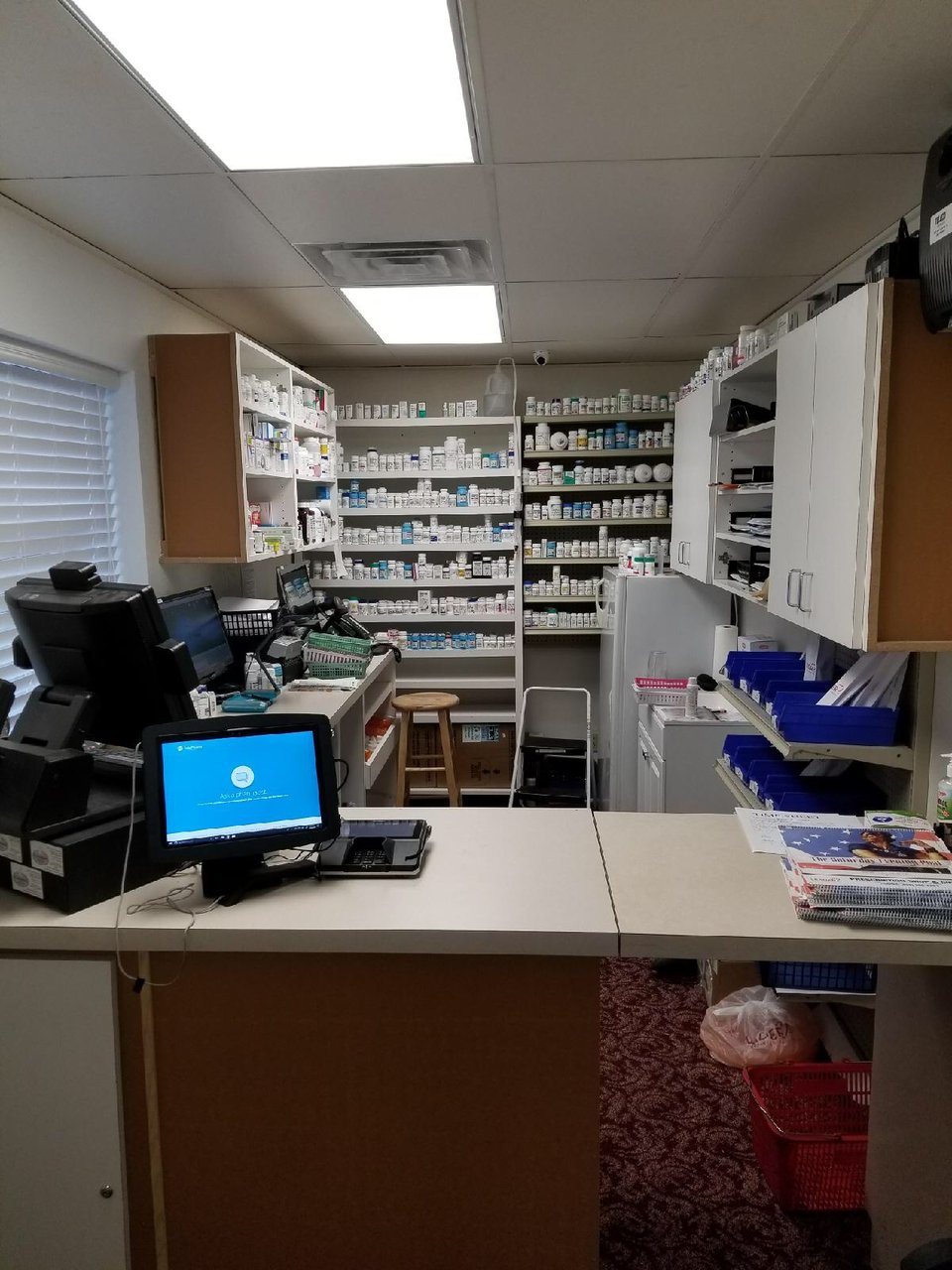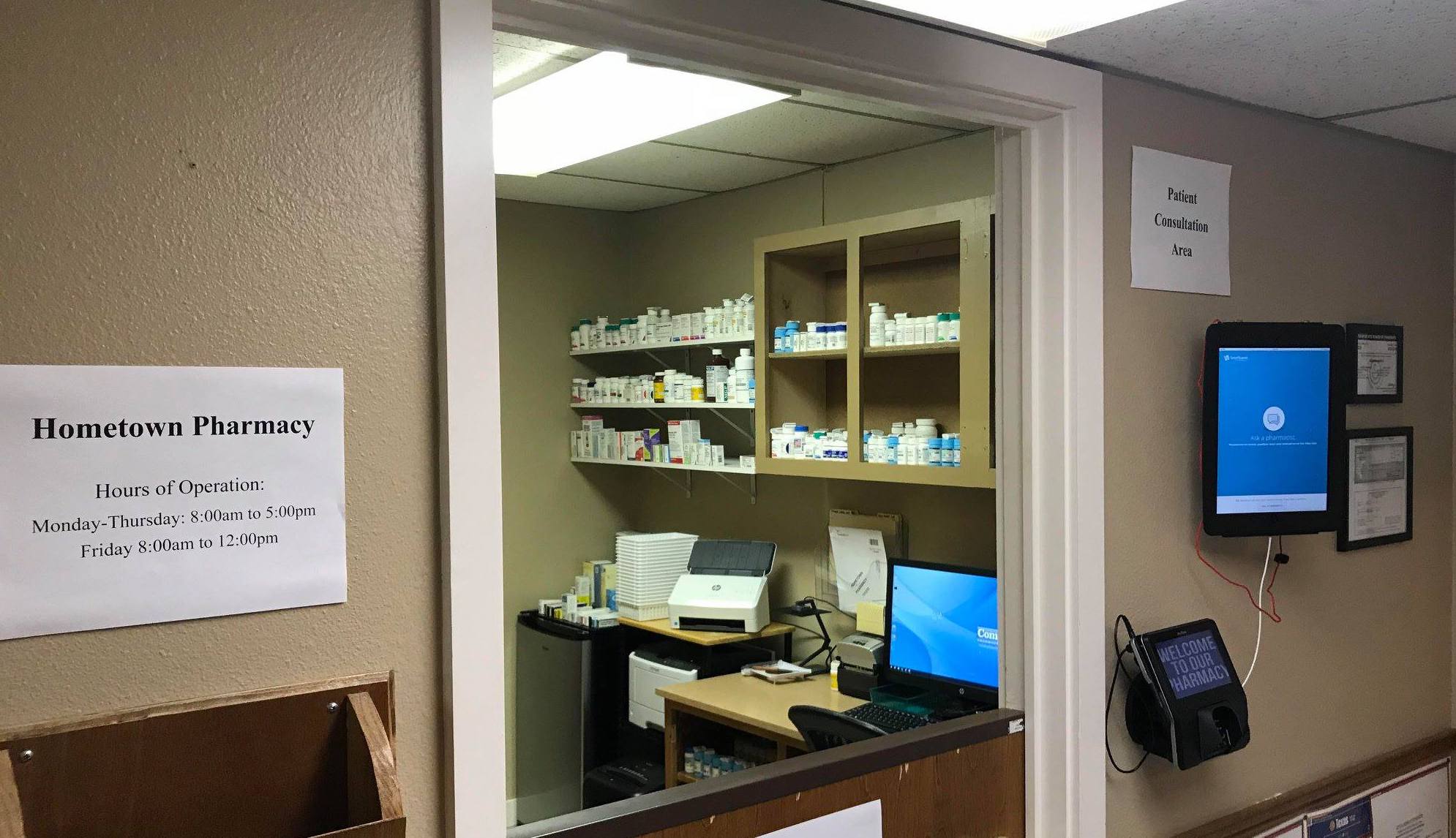Q&A With Micah Pratt: Pharmacist at Community Telepharmacy in Texas

“I think the sky’s the limit with telepharmacy because it’s in the best interest of the patients,” said Micah Pratt, owner of the first community telepharmacy in Texas.
Born in Texas and raised in his parents’ pharmacy, Micah became a pharmacist who wanted to do more for the patients he was regularly serving in a rural community over 25 miles away from his pharmacy. After hearing about telepharmacy, Micah met with Adam Chesler, Pharm.D., Director of Regulatory affairs at TelePharm regarding a potential pilot in the state, and together they approached the Texas State Board of Pharmacy in late 2016. In 2017, Texas passed legislation that made community telepharmacy legal throughout the state.
We sat down with Micah to discuss his telepharmacy journey and how things have been since opening his remote-dispensing site for business on September 1, 2017.
Q: Tell us about yourself and your operation.
“My name is Micah Pratt and I’ve been a pharmacist since I graduated in 06’ from the Texas Tech School of Pharmacy. I took over the Prescription Shop in 2012 from my parents, Kelly and Lori Pratt, where I worked as a staff pharmacist before. Growing up, I started as a delivery boy in the pharmacy when I was able to drive on Saturday mornings. When I graduated from high school I became a pharmacy technician, worked there through college, became a clinical pharmacy intern during pharmacy school, and I worked as a staff pharmacist after I graduated. The Prescription Shop has been in Littlefield, Texas for about 60-some years, and my parents have owned it for about 15 years. Mom is an RN and my dad is a pharmacist. I also bought another pharmacy this year in San Angelo, Texas.”
Q: What does your dad think about telepharmacy?
“My dad loves it. He knows it’s an outreach program for the patients of rural America, people living in , and we can do so much with it. There was an opposition movement to block community telepharmacy in Texas, but he was more on my side, and he’s always been a forward thinker on things. Maybe it’s just because he’s my dad (laughing). What it boils down to is he knows what’s possible with telepharmacy and what we can do with it. He thought it was awesome and was was onboard with the concept from the beginning.”
Q: What’s been the response from the town?
“Everyone that’s come in has said ‘We used to have a pharmacy here 4 years ago and we just fell apart after they left. So with you coming in, we have to keep you in business.’ These rural towns need this. The patients are really excited for a pharmacy, especially if they have a clinic. They scratched their head when they had to talk to a tablet, but I explained it to them and they didn’t seem to mind. The convenience is big for them, they love it. If we don’t have it, we can order it to have it the next day. I think it’s all about patient education and educating the community.”
Q: How are things going so far at the telepharmacy?
“Before opening, we transitioned everything over from Littlefield to Olton. Rosendo, our certified pharmacy technician, has been over there on his own, but I’ve been helping him get going some as well. The great thing is there is a lot of Spanish speaking population in Olton, and Rosendo is great at connecting with Spanish-speaking patients. We’re getting a lot of prescriptions in, and once we start establishing everyone and getting all of these refills in things will start to go quicker."
I will say that we did 58 prescriptions last Monday after being open for not even two full weeks.”
Q: What did you first think when you heard of telepharmacy?
“I was blown away. I have never heard of telepharmacy in the community setting. When I found out it was trying to get approved in Texas, I immediately thought of Olton, a rural town of 2,100 people that we serve out of our Littlefield location.
I didn’t even bat an eye at it. I just knew there was always something that I needed to do to make things better for Olton and the surrounding area. We offered a delivery service once per day in the afternoon, but that’s all we had to offer. People loved it, and it was free for them. But my delivery bill started pushing $3,000 per month. Having a physical location there opens up the door even more. This is a full-blown pharmacy, you can store your payment information in ComputerRx, our pharmacy management system, doctor’s can call in prescriptions, and we can still do deliveries. I’m embracing that full-pharmacy feel.”
Q: Tell us more about your involvement in the regulatory process and how you got started.
“I went to the state board to request a pilot project to waive the rules. Because of our success there, I was asked to testify to the legislature about it, so I did. Olton is a small town that lost its pharmacy and they needed this service. We got a letter signed by the city, and that letter just took off. Everyone got that buzz. I also had to give a testimonial speech in front of the Senate committee and had plans to give one in front of the House committee as well. When the Senate voted on the floor, it was unanimous and when the House voted on the floor it was an overwhelming majority that voted yes. A lot of folks wanted this for their district. My senator and representative, Senator Charles Perry and Representative Ken King, were critical supporters of bringing pharmacy access back to their community.
The county bought the local clinic about a year and a half ago and it was owned by the city of Olton with a health system managing its operations. Being a rural area, they couldn’t qualify for some services. I had approached the board about putting a telepharmacy in the back part of that clinic and my selling point was that the patients needed it. AJ Lipka, TelePharm’s salesperson, even came down and sat in on a clinic board meeting. I have seen studies that show addition of a pharmacy can have reciprocal effects of boosting the physician's office and overall patient outcomes as well. Our bill was carried by Representative Tom Oliverson on the House side who is also an anesthesiologist, and he really understood the benefits increased access can have for patients. Pharmacies should be working with doctor’s offices and doctors should work with pharmacies. We can make them synergistic with telepharmacy.
I like to create opportunities for people, whether they are a customer or an employee. We are creating an opportunity for folks to stay in their local town and we can offer better opportunities down the road. We are here to offer convenient pharmacy services to Olton, and they love it.”
Q: What would you tell someone who might have doubts or is hesitant in regard to telepharmacy?
“First off, why do you have doubts? What are they? Are they based off location? I think the telepharmacy model really works well with a clinic. If you put a telepharmacy in a location without a clinic, it will work, but it will be more successful with a clinic in the same town. The technology works, it’s great, and it’s an outreach program to rural America. If you want to push patients to drive 25+ miles to fill a prescription, that’s on you, but we want to better serve our patients.
Some folks need to take their blinders off. They don’t pay attention when they are communicating with one another. You really think someone should drive 25 miles with an ear ache to fill a prescription with a screaming child in the back? Aren’t we here for our patients and their health? We gotta do what’s right for them.”
Q: What does the future hold for you with telepharmacy?
“In Texas we can only have two per traditional pharmacy location, so I’m limited to 4 total right now with my managing sites in Littlefield and San Angelo. I’m always looking to purchase another store if the math adds up. I wish Texas wouldn’t have been so stringent with the mileage radius. But I think this is something we can explore more, and plus we’ve already put a deposit down on another location. Right now, pharmacy is a volume driven game more than ever before. Telepharmacy has great potential. We are also figuring out a 340B contract, so I think that will be great for us in the long run. I think the sky’s the limit with telepharmacy because it’s in the best interest of the patients.”
Q: What advice would you offer other pharmacy owners looking into telepharmacy?
“We do quite a few prescriptions per day at our main location with two pharmacists working at a time. Our technicians have their duties, including inputting information and filling the prescriptions. We also have clerks that handle registers, customer service — honestly they have and run their own departments. With the telepharmacy on the other hand, the technician has to be able to handle everything. They have to run the register, cash it out, fill prescriptions, send them over, and run daily reports. It’s a big change, so my number one piece of advice would be to make sure you have a great pharmacy technician.”
Have any questions about telepharmacy? Contact us or submit your regulatory-specific questions.





